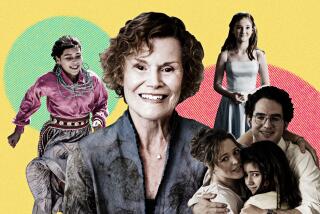It’s Called the Boob Tube for a Good Reason
- Share via
* Apparently Michele Lingre is not a child psychologist, educator, media analyst or other type of “expert.” Perhaps that is why she displayed such uncommon common sense in identifying what so many seem unable--or unwilling--to acknowledge: Television viewing has profound affects on children. (Let’s not forget the same is true for teen-agers and adults, but because their brains are more fully developed, the magnitude of the effect is minuscule by comparison.)
In her Jan. 9 commentary, “Turning Off TV Gives Child a New View of Life,” Lingre points to the core issue: Television watching as an activity should be the focus of the discussion.
Our societal debate regrettably has been refocused such that we now consider only the effects of content , specifically sex and violence--and of late simply violence.
To be sure, these have substantial effects on viewers young and old. But in light of numerous brain wave studies proving TV’s mind-numbing impact, no one should be surprised that a generation of kids raised on six-plus hours of television daily have record-low test scores, short attention spans, impaired learning abilities and lack of initiative.
Television acts on the mind in ways similar to many drugs. In the ‘60s and ‘70s, anti-drug campaigns asked, “Why do you think they call it dope?” Maybe we should ask ourselves “Why do you think they call it the boob tube?”
PHILIP J. MEDLIN
Granada Hills
More to Read
The complete guide to home viewing
Get Screen Gab for everything about the TV shows and streaming movies everyone’s talking about.
You may occasionally receive promotional content from the Los Angeles Times.






